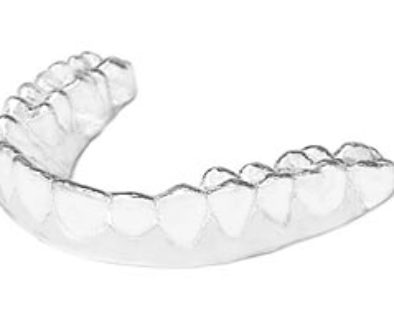How Long Does Dental Work Last?
 When most people have dental work done, they usually aren’t thinking ahead to what will happen when that filling, crown, or denture needs to be replaced or how they can extend it’s lifespan. They just want to get it over and get out of the dentist’s office! It is definitely something very important that you should think about! Let’s take a look at some different types of dental work, how long they last on average, and how you can maximize that lifespan.
When most people have dental work done, they usually aren’t thinking ahead to what will happen when that filling, crown, or denture needs to be replaced or how they can extend it’s lifespan. They just want to get it over and get out of the dentist’s office! It is definitely something very important that you should think about! Let’s take a look at some different types of dental work, how long they last on average, and how you can maximize that lifespan.
Fillings:
Fillings usually last around 2-10 years. The range on fillings is huge because there is an extreme amount of variation in how large the filling is, the type of filling material, and how much force they receive. I’ve seen some as old as 40-50 years old. I’ve also seen some fail within a year. Fillings fail for one of two main reasons. The first, and most common reason is that they develop decay around them. This is largely preventable. Maintain a good diet, avoid the intake of sugary drinks and foods, and brush and floss well. See our tips on dental health for more specifics on what you can do to prevent decay. The second reason for failure is either the filling or the tooth around it breaking. If you are a grinder, you can avoid some premature wear by wearing a nightguard. For everyone else, fillings wearing out is just a fact of life. Your mouth is one of the most difficult environments for anything to stand up to. That is why teeth are made out of the hardest material in the entire body. Filling materials still aren’t nearly as good as what you naturally have.
Crowns:
Crowns usually last about 10 years but I’ve seen ones that have lasted over 50 years and also a few that have failed within a couple of years! The main reason crowns need to be replaced is if the tooth develops a cavity under the crown. As with fillings this is largely preventable. Flossing around crowns is especially important. Crowns can also fail if they break. Newer materials are much stronger but can still break with the repeated wear and tear of being in your mouth over the years.
Root Canals
This is where it gets a little tricky. Studies have shown that success rates of root canals range from around 92-97% over about an eight year period. Root canals done by endodontists (root canal specialists) have significantly higher success rates than those done by general dentists. It’s about 90% for general dentists and 98% for endodontists. The other important factors in a root canal’s success are the state of the tooth prior to the root canal and having the final filling and/or crown done as soon as possible after the root canal is completed. Root canals usually fail by the tooth becoming reinfected and this has little to do with how well you take care of the tooth afterwards (but it can make the crown or filling in it fail faster).
Dental Implants
Studies have shown dental implant success rates from about 95-99% over varying time periods (anywhere from 2-16 years). Dental implants are the newest treatment option in dentistry and don’t have the same kind of long term studies as many other treatments do but what information we do have suggests that they are a very stable long term option for tooth replacement. The most common failure for a dental implant is when it develops an infection around the implant that destroys the bone in the area. This is known as peri-implantitis and is very similar to periodontal disease. You must take care of an implant just like a regular tooth. That includes brushing and more importantly, flossing around it regularly.
Partial Dentures (some teeth remaining):
The lifespan on partial dentures is difficult again because there is a huge variation in number of teeth remaining, materials, etc. On average we like to see at least 5-10 years before they need to be replaced. Some will need to be replaced or repaired before this and some will last significantly longer. The most important things you can do extend the lifespan is to take care of your other teeth. If you lose additional teeth due to decay or periodontal disease, you may need a new partial or even have to get a full denture.
Complete Dentures (no teeth remaining)
Most full dentures last at least 10 years before needing to be remade entirely. Sometimes you’ll need a reline or two during this time period as your gum tissue shrinks but the teeth generally hold up pretty well. If you have your natural teeth biting against a denture, the teeth will wear down significantly faster than if you have both bottom and top dentures.



